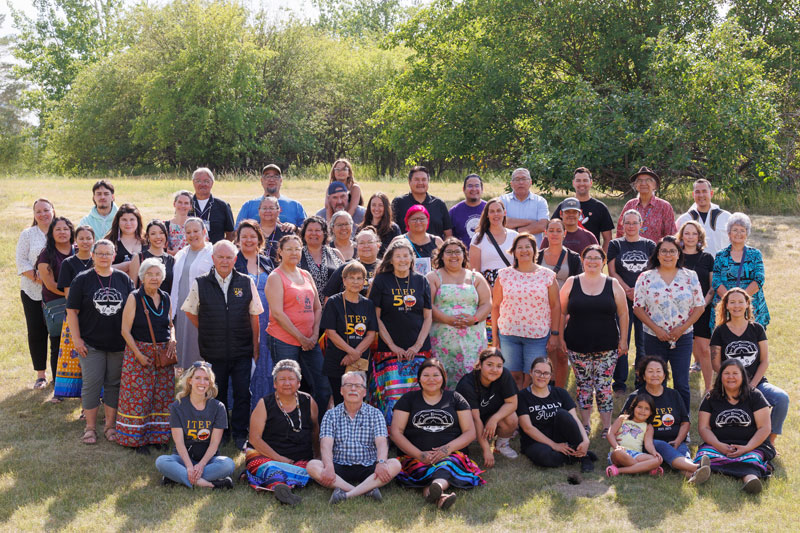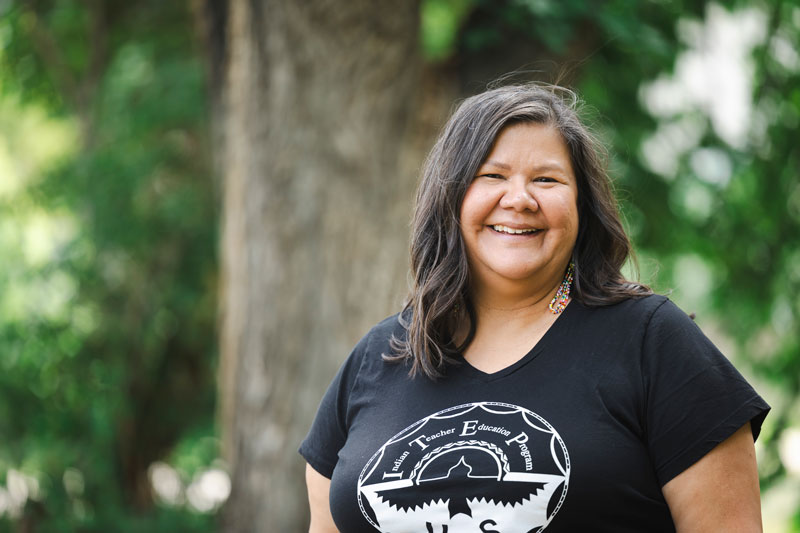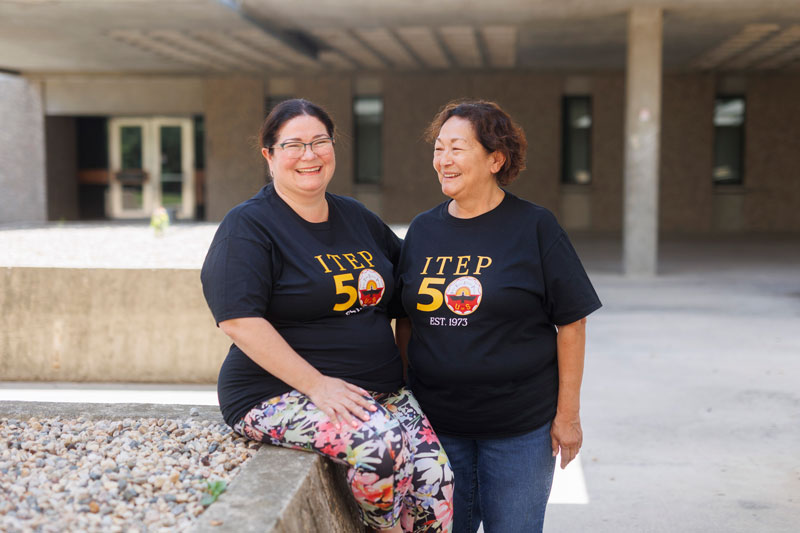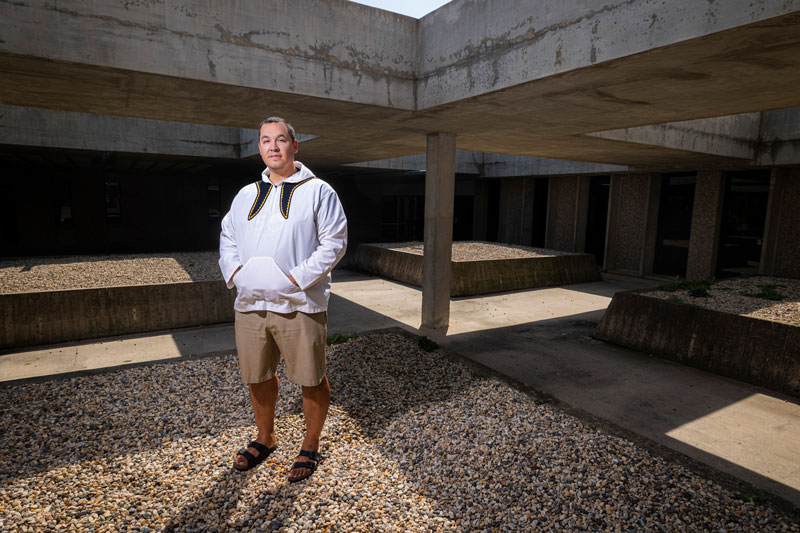
Celebrating 50 years of making change in education
USask alumni share excitement and pride during ITEP’s anniversary celebrations
By Paul SinkewiczYvette Arcand (BEd’97, PGD’08, MEd’13) said it felt surreal as she looked around at the celebrations going on in early July 2023 to mark the 50th anniversary of the Indian Teacher Education Program (ITEP)—so many lives have been touched by the program, and so much progress has been made since its inception in 1972/73.
“You could just see that sense of pride and happiness and how everybody was so happy to see some of their peers,” she said. “There was so much excitement in the air.

“I’ve been a part of ITEP since 1991, and just to see how much ITEP has been a part of implementing change within not only band-controlled schools, but also provincial schools right across Saskatchewan—it kind of gave me an idea of how privileged we are to be a part of that history.”
ITEP is the longest-running program of its kind in Canada, and it has graduated more than 3,000 alumni.
During her own educational journey as a child and teen, Arcand didn’t experience her first Indigenous teacher until Grade 10.
“Before that, I didn’t realize that was a possibility. But if students see themselves during their own development as a student, it really affects them,” she said.
“We are now seeing that many of the education students entering ITEP have had the majority of their educational experience guided by Indigenous teachers. And that really fosters a sense of belonging.”
ITEP began its more than year-long 50th anniversary celebrations with a traditional pipe ceremony and a storytelling festival in November 2022.
In March 2023, it held a Round Dance, and on April 28, 2023, the 6th annual māmowi āsohtētān Internal Truth and Reconciliation Forum took place.
In early July 2023, alumni of the program took part in the ITEP golf tournament at the Dakota Dunes Resort and a Culture, Language, Traditional Teaching and Learning Gathering & BBQ on campus.
The program also released the third edition of the ITEP Creative Writing and Poetry Anthology at McNally Robinson in October. Copies are also available at the USask Bookstore.
Anniversary events have continued into 2024, with plans to recognize longtime Indigenous educator and ITEP founder Dr. Cecil King (BEd’73, MEd’75) by naming the ITEP student lounge in his honour. King passed away in May 2022.
Fond memories of King came to the minds of Edie Venne (BEd’94, MEd’15) and Kona Barreda (BEd’03) when they returned to the university to take part in the celebrations in July. The mother-daughter graduates of the program said it was the mentors, like King, who made the program a success for them.

“Their doors would always be open,” said Barreda. “You could go in and talk, and they would help you through your crisis.”
“We became a big family because we were basically all on the same journey,” added Venne. “We were all wanting to be teachers, and back when I went, we were mostly all in our 30s and 40s.”
Venne graduated in 1994, and said it is gratifying to see Indigenous children around the province, and Canada, now have more role models in the profession of teaching. When she went to school there were no Indigenous teachers in her life.
Her daughter, Kona, who graduated from the program in 2003, can only remember having one Indigenous teacher growing up. But later, her mother inspired her to also take up teaching, and she now sees the positive effect she is having on her own students. It is why ITEP is so important, she said.
“Kids need to have people that understand them. And who could understand them more than other Indigenous people?”
Another participant at the anniversary celebration in July was also influenced by a parent educator who came through ITEP.
Dwayne Drescher (BEd’16) first heard of ITEP through his father, who gave him a tour of the College of Education building when he was 10.

When he later decided to become a teacher himself, Drescher followed in his father’s footsteps all the way from Inuvik.
He had already taken part in the Aboriginal Language and Culture Instructor Program at Aurora College, in the Northwest Territories, and wanted to continue his studies at ITEP. His goal was to return home and teach Inuvialuktun reading and writing skills to all ages of elementary school children.
“My goal is to motivate and inspire more Inuit to first be proud of who they are, and then go pursue their dreams. I think it’s important to be fluent in your identity, as well as in your language,” said Drescher, who is a current student in the Master of Education (MEd) in Educational Administration – Leadership in Indigenous Education and Organizations Cohort program.
“For me, ITEP represents action and actual evidence of the 1972 Indian Control (of) Indian Education policy document, as ITEP annually brings fresh new Indigenous educators into schools.”


